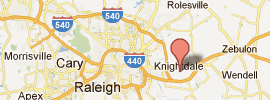Post-Judgment Defense & Claims of Exemption
After a civil judgment is entered, the legal process is not over in North Carolina. Many judgments are hard to collect upon in North Carolina, and judgment debtors often have options to resist collection efforts or to resolve the debt.
What happens after a Judgment
After a judgment has been granted, the plaintiff-creditor is entitled to statutory remedies to attempt to get the judgment paid (satisfied). A judgment lien arises on the defendant-debtor's real estate. A writ of execution can be obtained in order to have the sheriff sell property of the debtor. However, before execution, state law requires that the defendant has an opportunity to have designated property exemptions. Once designated, these exemptions exclude certain property from being sold by the judgment creditor.
Less frequently, the plaintiff might engage in supplemental proceedings to gather more information about a defendant-debtor's assets. Failure to properly cooperate with supplement proceedings can result in contempt proceedings, so defendants faced with these types of proceedings are well-served to seek legal advice regarding how to proceed and respond.
If a defendant is prepared to pay towards a judgment, many creditors are willing to settle judgments for less than the balance owed.
Once a judgment has been obtained it becomes more difficult to dispute the underlying facts alleged by the plaintiff. Nevertheless, occasionally there may be opportunities to seek to have a judgment set aside, due to error or defect.
Sometimes, it makes sense for a judgment debtor to pursue bankruptcy to void a judgment.


